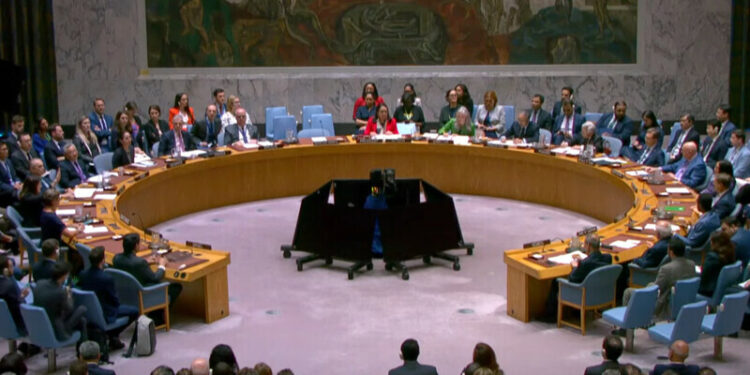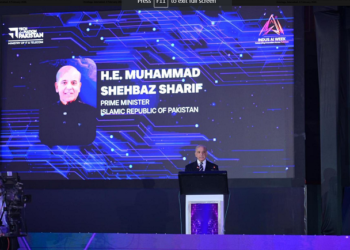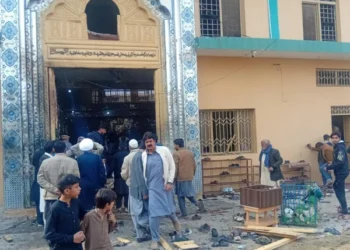Introduction: Another US Veto Blocks Gaza Ceasefire Resolution
In a move that has sparked widespread international criticism, the United States vetoed a United Nations Security Council resolution calling for an immediate ceasefire and unconditional humanitarian access in Gaza. The resolution, drafted by Algeria, received overwhelming support from 14 out of 15 members of the Security Council. The US was the only member to vote against the measure, effectively blocking its adoption due to its veto power.
This latest veto has drawn condemnation from various countries and humanitarian groups, who argue that the United States is obstructing international efforts to end the ongoing humanitarian crisis in Gaza. Meanwhile, the US insists that the resolution undermines ongoing diplomatic negotiations and fails to acknowledge Israel’s right to self-defense.
Background: Ongoing War in Gaza and Previous UN Efforts
The situation in Gaza has remained dire since the start of the Israel-Hamas war in October 2023. Following the surprise attack by Hamas on southern Israel that triggered the conflict, Israel launched a sustained military campaign in the Gaza Strip. The war has resulted in the deaths of more than 36,000 Palestinians, according to Gaza health authorities, and displaced over 1.7 million people, pushing the region into what the UN describes as a “full-blown humanitarian catastrophe.”
Since the conflict began, various resolutions calling for ceasefires or humanitarian pauses have been presented at the UN Security Council, but most have been blocked or delayed due to political divisions—especially by permanent members like the United States wielding their veto power.
This latest veto is the third such action by Washington since the conflict began, highlighting the US’s continued diplomatic support for Israel despite rising international pressure.
Details of the Vetoed Ceasefire Resolution
The Algerian-drafted resolution explicitly called for:
- An immediate, unconditional, and permanent ceasefire in the Gaza Strip.
- Unhindered humanitarian access to aid agencies and civilians trapped in Gaza.
- The immediate and unconditional release of all hostages held by Hamas and other armed factions.
- The lifting of all restrictions on humanitarian access to ensure food, medical supplies, and clean water reach those in need.
Despite receiving overwhelming support from nations including France, China, Russia, Pakistan, and many non-permanent members, the resolution was struck down due to the US veto.
US Justification: Protecting Israel’s Right to Self-Defense
Following the vote, US Secretary of State Marco Rubio defended the decision in a public statement. He said:
“Today, the United States has sent a strong message by vetoing a damaging UN Security Council resolution targeting Israel on Gaza.”
Rubio added that Washington “will not support any resolution that creates a false equivalence between Israel and Hamas,” and reaffirmed the US stance that Israel has the right to defend itself against terrorist attacks.
The US argued that the resolution could derail ongoing negotiations, including talks aimed at securing a temporary truce and releasing remaining hostages. US diplomats also emphasized that diplomatic discussions brokered by Egypt, Qatar, and the US itself are still underway and should not be disrupted by binding Security Council resolutions.
Global Condemnation of the US Veto
Despite the US explanation, Security Council members and international observers expressed sharp criticism of the American veto, accusing Washington of obstructing global efforts to stop the bloodshed in Gaza.
Pakistan: A Moral and Political Stain
Pakistan’s Ambassador to the UN, Asif Ahmed, delivered a strongly worded rebuke, calling the failed resolution:
“Not only a moral stain on the conscience of this Council, but also a political moment whose effects will be felt for generations.”
He emphasized the urgent need for the international community to uphold humanitarian principles and stop the “continued massacre of innocent civilians.”
China: The US Is the Main Obstacle
China’s Ambassador Fu Kong criticized the US directly, stating:
“The result of today’s vote once again shows that the real reason for the failure to end the conflict in Gaza is the continued obstruction of the United States.”
China has repeatedly called for an immediate ceasefire and a two-state solution as the only viable path to lasting peace in the region.
France: The Council Is Being Prevented from Acting
French Ambassador Jérôme Bonnafont lamented that the Security Council had once again failed to fulfill its responsibility:
“The Council was prevented from fulfilling its responsibility, even though most of us seem to agree on the same point of view.”
France has also supported efforts for a ceasefire and increased humanitarian access in recent weeks.
Hamas Response: “Shameful” Veto and Genocide Accusations
The Palestinian resistance group Hamas strongly condemned the US veto, labeling it as “shameful” and “a stain on America’s moral record.”
In a statement released shortly after the vote, Hamas accused the United States of:
- Legitimizing genocide
- Supporting Israeli aggression
- Justifying hunger, destruction, and mass murder
The group said the veto would embolden Israel to continue its military campaign unchecked and deepen the humanitarian crisis in Gaza.
Palestinian Authority’s Next Steps: Turning to the General Assembly
Following the failed Security Council vote, Palestinian Ambassador Riyad Mansour announced that the Palestinian Authority would now seek action from the UN General Assembly, where the US does not have veto power.
“We will now request the General Assembly to adopt a ceasefire resolution,” Mansour said, expressing hope that global public opinion and widespread support among UN member states could pressure Israel into halting its offensive.
Although General Assembly resolutions are non-binding, they carry significant moral and political weight, especially if supported by a majority of countries.
Humanitarian Situation in Gaza: A Crisis Worsening by the Day
The humanitarian situation in Gaza remains alarming, with the UN warning of famine, disease, and infrastructure collapse. UN agencies and NGOs report:
- Hospitals and clinics are running out of essential supplies.
- Over 60% of Gaza’s housing stock has been damaged or destroyed.
- Children and women make up the majority of civilian casualties.
- Clean water and electricity are almost entirely unavailable in many areas.
Despite the desperate need, humanitarian access remains restricted, especially in northern Gaza, where aid convoys face roadblocks and security threats.
What Happens Next: Growing Pressure on the United States
With mounting pressure from the international community, human rights groups, and domestic critics, the US faces growing isolation over its continued support of Israel without conditions.
Diplomatic observers suggest:
- The UN General Assembly vote could shift global opinion and increase pressure on Washington.
- Public protests and advocacy may influence US foreign policy, particularly in an election year.
- Allied nations may demand clearer US commitments to humanitarian law and international peace initiatives.
Conclusion: A Divided World Watches as Gaza Burns
The United States’ latest veto of a Gaza ceasefire resolution at the UN Security Council marks another chapter in a deeply polarizing global crisis. As bombs continue to fall on Gaza, and humanitarian needs reach critical levels, international demands for peace grow louder.
Yet with the Security Council paralyzed and diplomatic negotiations faltering, the question remains: How many more lives must be lost before the world can agree on a path to peace?

























